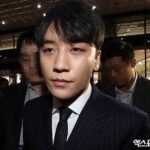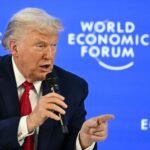
China is ramping up investments in global strategic and infrastructure assets via indirect channels as a major backer of private equity funds, raising concerns among economic experts about potential threats to economic security.
Amid a lack of oversight on buyout firms, South Korea’s recent amendment to the Commercial Act in favor of minority investors could grant private equity firms greater control over corporate management.
This could eventually allow China to increase its influence over Korea’s core technology and key companies within global supply chains, experts warn.
To protect its economic security, they urge Seoul to adopt a system similar to the Committee on Foreign Investment in the US (CFIUS), which oversees foreign capital’s investments, even minority stakes, in companies that hold core technology and strategic assets.
They are also calling for stricter regulations that require companies to disclose the details of their ultimate beneficial owners (UBOs), making it easier to identify the true source of foreign capital and enhancing transparency in the capital market.
REGULATORY LOOPHOLE
South Korea has already introduced a UBO verification system, but offshore funds are only required to verify the representative of the asset management company.
“Chinese capital is aggressively making an indirect approach to strategic assets and core industries via PEFs and offshore entities,” Lee Chi-hun, general director of the world economic analysis division at the Korea Center for International Finance, said in a panel discussion hosted by KED Global on Wednesday.
“China’s use of offshore entities such as Singapore, Hong Kong and Cayman, shell companies and interconnected fund structures obscures the flow of capital and the ultimate intentions behind its investments.”
RISING LIQUIDITY AND HIGHER INVESTMENT QUOTAS
China’s ample money supply and the increase in its quota for cross-border investments under the Qualified Domestic Institutional Investor (QDII) program in June will enable them to boost their contributions to PE firms.
The world’s second-largest economy encourages overseas investments in high-tech and advanced manufacturing companies, as well as oil fields, mines and other energy development projects. The move is seen as aimed at strengthening its dominance within global supply chains.

SHAREHOLDER ACTIVISM
China’s increasing role as a limited partner (LP) of PEFs comes as buyout firms are stepping up shareholder activism to capitalize on management disputes in South Korea’s family-owned conglomerates.
The adoption of cumulative voting and the expansion of access to audit committee seats under the revised Commercial Act will give PEFs greater sway over listed Korean companies, experts caution.
CONGLOMERATES’ PARTNERSHIP WITH PEFs
Further, third-generation leaders of family-own conglomerates show little hostility toward PEFs. They often partner with them for acquisitions, or selling non-core assets, allowing PEFs more room to expand their presence in the domestic M&A landscape.
“In practice, we lack regulatory tools to defend against PEFs, leaving no safeguards against Chinese fund inflows through them,” said Park Ju-gun, chief executive of Leaders’ Index, a research house, adding that PEFs make investments through blind pool funds.
“If management disputes arise and indirect capital investments increase, companies may risk the leakage of national core technologies and a loss of control over global supply chains,” Park said.
“We should designate core infrastructure assets and require PEFs investing in them to disclose their LPs.”
CAPITAL MARKET TRANSPARENCY
Song Heon-jae, professor of economics at the University of Seoul, poinsted out the lack of transparency in the domestic capital market.
He urged the government to strengthen its review for inbound investments, drawing on models such as the CFIUS in the US, Japan’s Foreign Exchange and Foreign Trade Act (FEFTA) and the EU’s FDI screening framework.

INDUSTRIAL PROTECTION POLICY
Kang Cheon-gu, a visiting professor of energy resource engineering at Inha University, pointed to Korea Zinc’s recently signed memorandum of understanding with US defense contractor Lockheed Martin as “a clear example of the strategic position Korean companies hold within the global critical mineral supply chain.”
However, South Korea falls short of an industrial protection policy to safeguard companies’ core technology, he said.
Inconsistent government policy, particularly in the energy sector, also hampers South Korean companies’ ability to counter foreign financial threats.
POLICY BANKS’ RISK AVERSION
Ha Yoon-hee, a professor at the Graduate School of Energy and Environment (Green School) of Korea University, said that the risk aversion of policy lenders such as the Korea Development Bank and the Export-Import Bank of Korea, often due to strict parliamentary audits, create a vacuum in early-stage energy project financing.
High debt-to-equity ratios at state-run utilities such as Korea Electric Power Corp., weighed down by regulatory caps on energy price increases, have discouraged their investment in infrastructure projects such as battery storage systems and energy management systems.
“If foreign capital enter energy projects through PEFs or special purpose companies, it could threaten the stability of the national energy network even with minority stakes,” she warned.
Under the current law, minority shareholders face no restrictions on intervening in power companies’ management by demanding access to sensitive data and preemptive purchasing rights, Ha added.
By Yeonhee Kim
yhkim@hankyung.com
Jennifer Nicholson-Breen edited this article.














